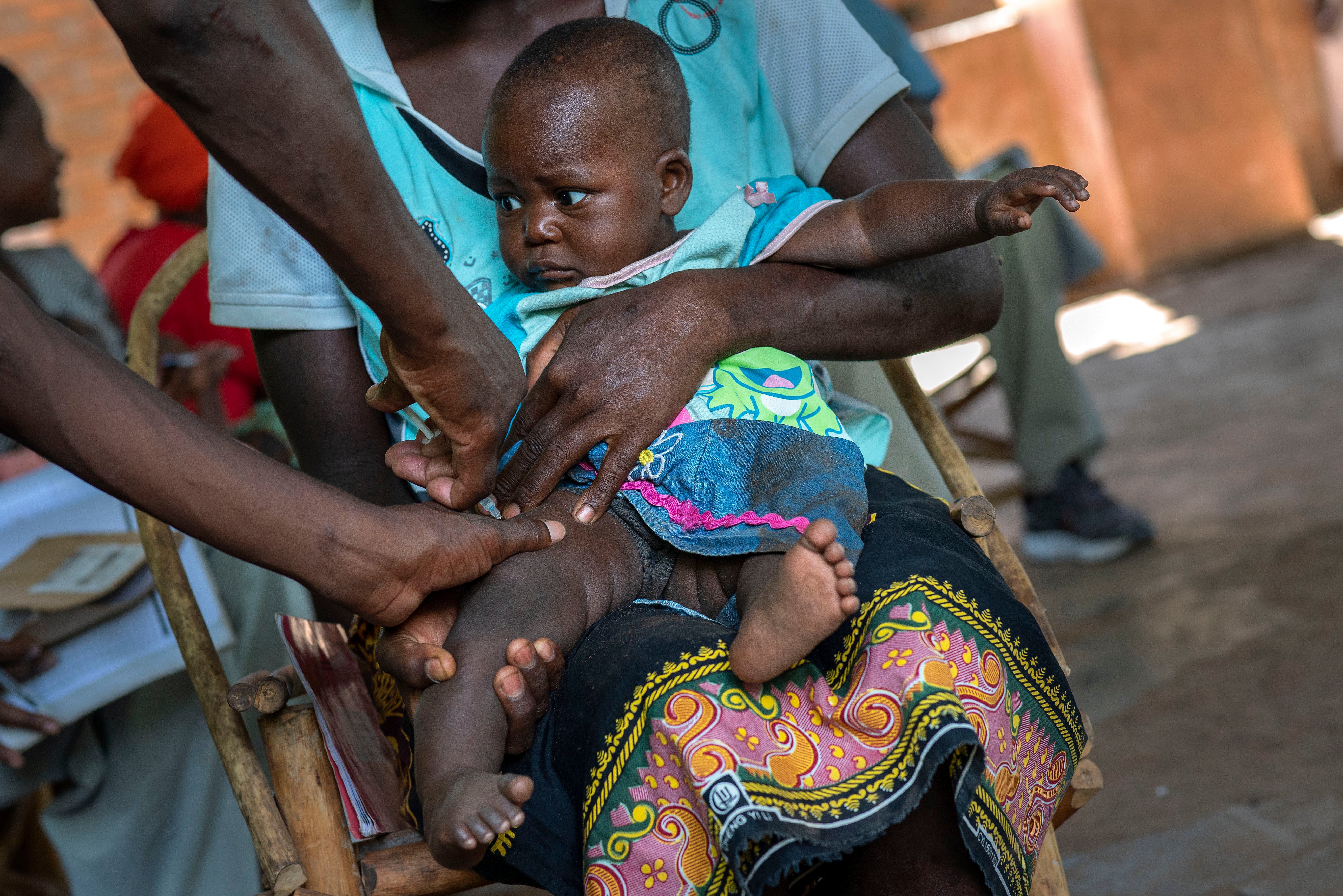Major step in fight against malaria as Oxford-developed vaccine approved by WHO
It is estimated that around 500,000 children die of malaria each year

Your support helps us to tell the story
From reproductive rights to climate change to Big Tech, The Independent is on the ground when the story is developing. Whether it's investigating the financials of Elon Musk's pro-Trump PAC or producing our latest documentary, 'The A Word', which shines a light on the American women fighting for reproductive rights, we know how important it is to parse out the facts from the messaging.
At such a critical moment in US history, we need reporters on the ground. Your donation allows us to keep sending journalists to speak to both sides of the story.
The Independent is trusted by Americans across the entire political spectrum. And unlike many other quality news outlets, we choose not to lock Americans out of our reporting and analysis with paywalls. We believe quality journalism should be available to everyone, paid for by those who can afford it.
Your support makes all the difference.A cheap malaria vaccine developed with the help of UK scientists that can be produced on a massive scale has been recommended for use by the World Health Organisation (WHO).
R21/Matrix-M has been developed by the University of Oxford in partnership with the Serum Institute of India and costs between $2 (£1.65) and $4 (£3.30) per dose.
It has undergone clinical trials in the UK, Thailand, and several African countries and was first approved for use in children aged five months to three in Ghana in April.
It has now been backed by the World Health Organisation following advice from the body's Strategic Advisory Group of Experts on Immunisation (Sage) and the Malaria Policy Advisory Group (MPAG).
It is the second malaria jab recommended by WHO and follows the RTS,S/AS01 vaccine, which was given the green light by the organisation in 2021.
It is estimated that around 500,000 children die of malaria each year.
WHO said both vaccines "are shown to be safe and effective in preventing malaria in children" and are expected to have a “high public health impact”.
However, Dr Tedros Adhanom Ghebreyesus, director general of WHO, said demand for RTS,S/AS01 has been “unprecedented”.
“As a malaria researcher, I used to dream of the day we would have a safe and effective vaccine against malaria. Now we have two.
“Demand for the RTS,S vaccine far exceeds supply, so this second vaccine is a vital additional tool to protect more children faster, and to bring us closer to our vision of a malaria-free future.”
Gareth Jenkins, executive director of advocacy and strategy at Malaria No More UK, said the jab is "another example of the tremendous power of UK-backed research and development”.
“Groundbreaking British-led science has today taken us a step further in the fight against malaria,” he added.
“By adding a second malaria vaccine to our arsenal we will be able to extend the reach of this vital preventative tool to thousands more children and avert further unacceptable and preventable deaths.
“Yet it is vital that both malaria vaccines have the funding, support and pathways required to reach children as quickly and effectively as possible.
“The reality is that malaria financing globally is far from where it needs to be and annual deaths from malaria rose during the pandemic and are still above pre-pandemic levels, so we cannot afford to be complacent as new tools are developed.”
The R21/Matrix-M vaccine will now need to complete the ongoing WHO prequalification to enable global procurement of the drug for a broader rollout.
At least 28 countries in Africa plan to introduce a WHO-recommended malaria jab as part of their national immunisation programmes.
PA
Join our commenting forum
Join thought-provoking conversations, follow other Independent readers and see their replies
Comments